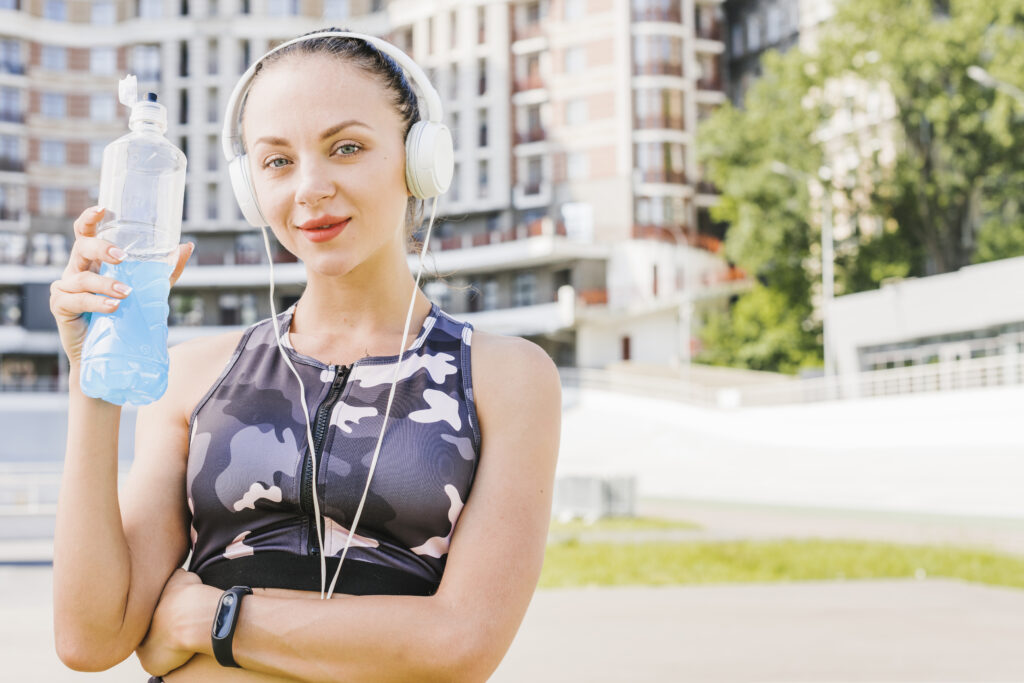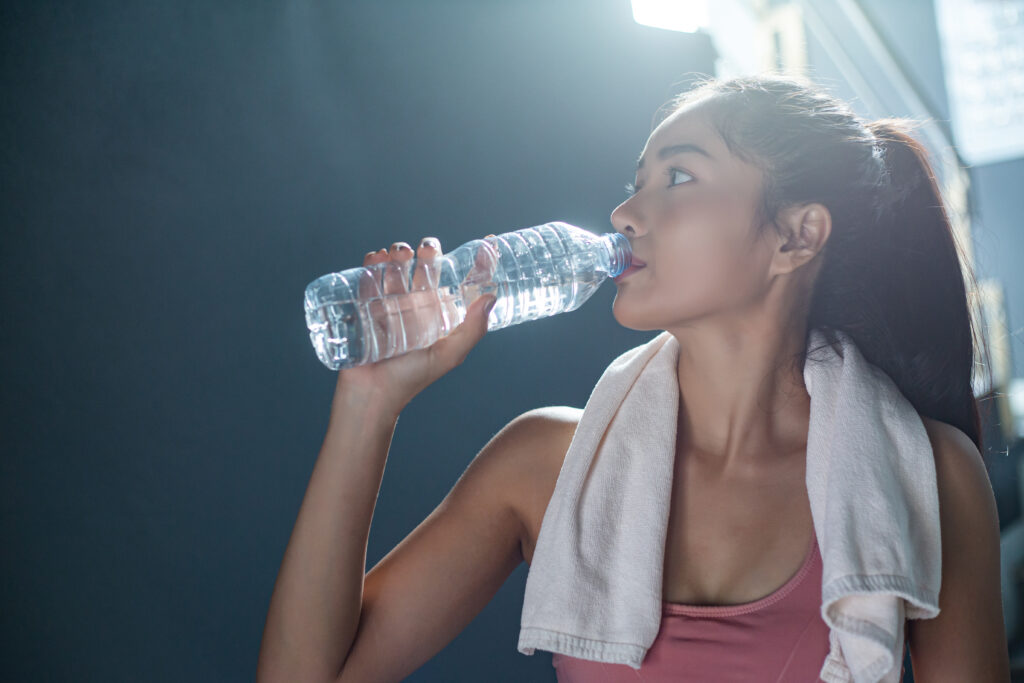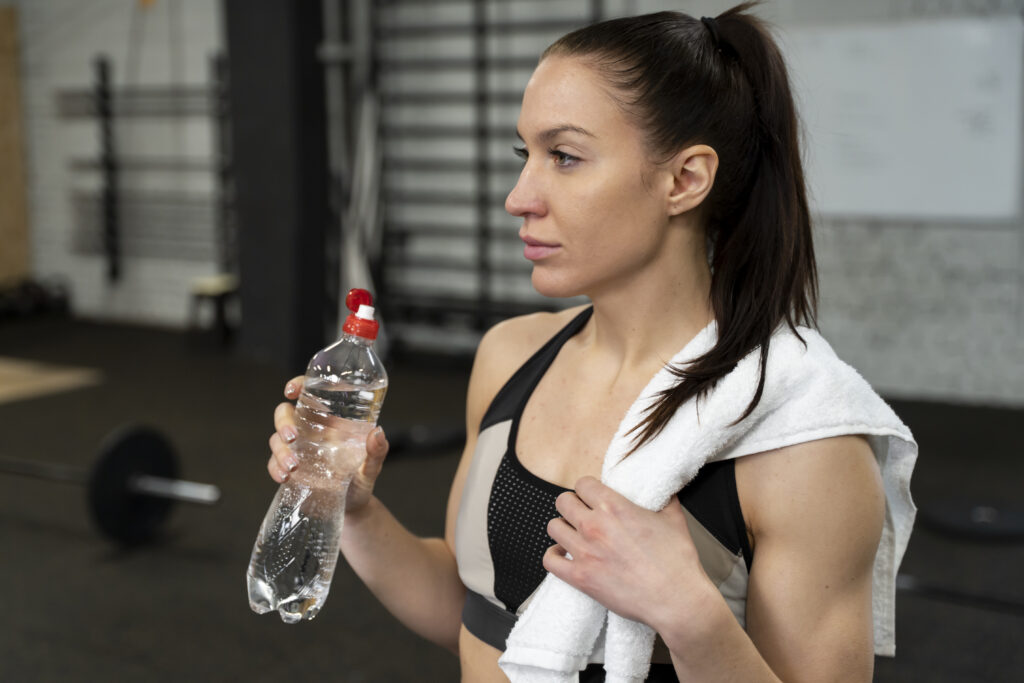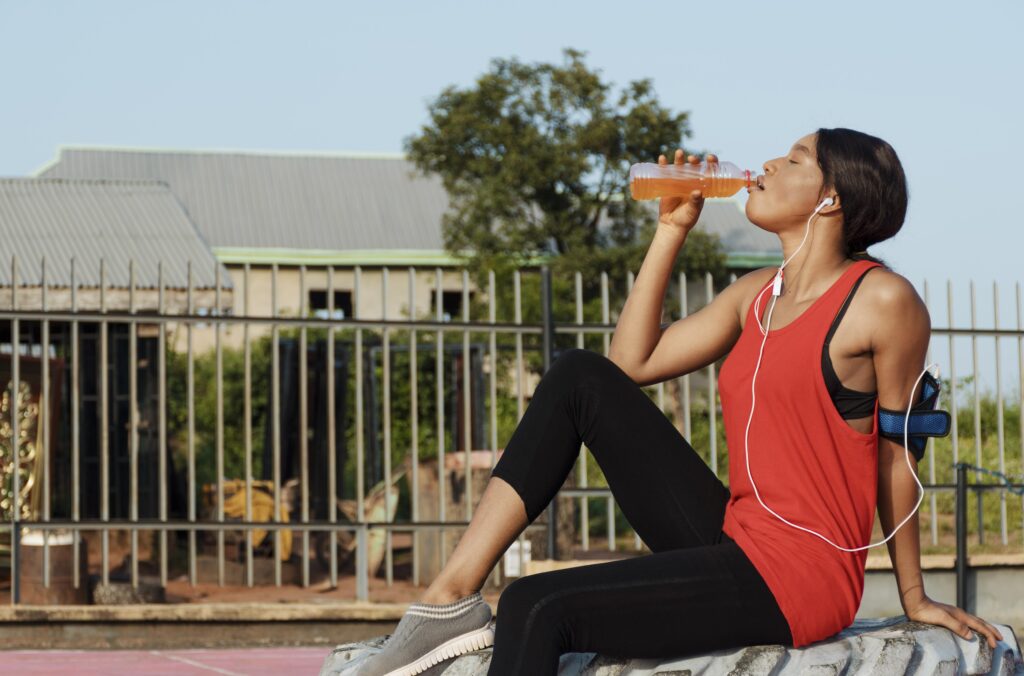
Table of Contents
ToggleThe Importance of Hydration for Athletes
Imagine, an engine is running at full speed. It not only needs fuel but also a cooling system that can keep it cool. In the same way, the human body is also like an engine and hydration is the coolant that keeps it operating at peak efficiency. Hydration is more than just quenching thirst; it’s a critical factor that affects every aspect of athletic performance.
Hydration is very important for athletes because it maintains muscle function by transporting water and nutrients.It regulates body temperature by replenishing wasted fluids through sweating and also fixes heat related issues. Hydration also improves cognitive function, ensuring sharper concentration and decision-making. Proper hydration lowers the risk of injury by lubricating joints and promotes faster recovery by flushing metabolic waste. Maintaining electrolyte balance through hydration is essential for muscle function and cramp prevention. Adequate hydration prevents blood volume loss, allowing endurance athletes to maintain performance and stamina over long periods of time.
Water requirements
Hydration depends on many factors like age, weight, and climate. Age plays a significant role because the hydration needs of children and adults are different.
Children: Children’s water requirements are more than those of adults. Therefore, children should drink 4 to 8 cups (1-2 L) of water daily depending on the age, activity level and climate.
Adults:The water requirements of adults are more stable but they need hydration to maintain body functions. Adults should drink 8 to 10 cups (2-2.5 L) of water daily.

Tip No 1. - Pre-Hydration: Setting the Stage for Success
Pre-hydration is similar to priming your body’s engine for a big race. Just as you wouldn’t embark on a journey with an empty tank, staying hydrated before training or competition prepares you for peak performance. It’s not just about drinking water right before you begin; it’s about gradually increasing your hydration levels in the hours leading up to your activity. This can include drinking water throughout the day, eating hydrating foods like fruits and vegetables, and avoiding diuretics such as caffeine.
Giving your body the fluids it requires beforehand helps to maintain endurance, regulate body temperature, and prevent those dreaded mid-activity slumps. So, consider pre-hydration as the foundation for your athletic success—it’s the small but crucial step that can make a big difference.
Tip No 2. - Intra-Workout Hydration: Staying on Top of Your Game
Staying hydrated during a workout is essential for achieving peak performance and endurance. Drinking fluids on a regular basis helps to replenish the water and electrolytes lost through sweat, preventing dehydration and fatigue. Instead of waiting until you’re thirsty, try taking small sips throughout your session.
For shorter, less intense workouts, choose water, and for longer, more strenuous activities, consider electrolyte-rich sports drinks. Maintaining proper hydration will keep your body and mind sharp, allowing you to push through your training with sustained energy and focus.

Tip No 3. - Post-Workout Hydration: Recovery and Replenishment
Post-workout hydration is essential for recovery and replenishment, allowing your body to recover and prepare for the next obstacle. Sweating is how your body loses fluids and electrolytes after intense exercise, which can cause dehydration and fatigue. Drinking water or an electrolyte-rich recovery drink restores balance, replenishes lost nutrients, and aids muscle repair.
It’s more than just quenching your thirst; post-workout hydration speeds up recovery, reduces muscle soreness, and maintains energy levels, leaving you feeling refreshed and ready for your next workout. Hydration after exercise is a simple but effective way to improve your overall athletic performance and well-being.
Tip No 4. - Electrolyte Balance: Beyond Just Water
Electrolyte balance is an important aspect of hydration that is frequently overlooked in favor of just drinking more water. Electrolytes, including sodium, potassium, and magnesium, are essential for fluid balance, muscle function, and nerve signaling. Sweating during intense workouts causes you to lose these essential minerals, which water cannot replace.
To keep your body functioning at its best, replenish these electrolytes with drinks or foods such as bananas, nuts, and sports beverages that are specifically designed to restore electrolyte levels. By monitoring your electrolyte intake, you can ensure that your hydration strategy benefits not only your endurance but also your overall health.

Tip No 5. - Monitoring Hydration Levels: Tools and Techniques
Monitoring hydration levels is critical for athletes who want to maintain peak performance. While the traditional method of checking urine color can provide a quick indication—light yellow indicates good hydration, while dark yellow indicates a need for more fluids—advanced tools now exist. Wearable hydration monitors, for example, provide real-time feedback by analyzing sweat and measuring fluid and electrolyte loss.
Smart water bottles can monitor your intake and remind you to drink throughout the day. Even simple techniques such as weighing yourself before and after a workout can help you determine how much water you need to replenish. Athletes can stay properly hydrated and perform at their peak by combining modern gadgets with attentive self-awareness.
Conclusion
Proper hydration is more than just drinking water; it’s about creating a habit that fuels your body and mind for peak performance.🌟 By consistently prioritizing hydration, you can improve your endurance, recovery, and overall health. Make it a part of your pre-workout routine, exercise, and post-workout recovery. Listen to your body’s signals and make adjustments to ensure you’re always performing at your best. Congratulations on making hydration a natural and enjoyable part of your fitness journey! 🥤💪
FAQS
Hydration is essential for athletes because it regulates body temperature, lubricates joints, and promotes muscle function. Proper hydration can improve performance, reduce cramping, and lower the risk of heat-related illnesses.
Athletes’ water requirements vary depending on their body weight, exercise intensity, climate, and individual sweat rates. A general guideline is to drink half your body weight in ounces of water per day, but this should be adjusted based on individual needs and conditions.
Dehydration symptoms include dry mouth, fatigue, dizziness, headache, dark urine, and decreased performance. Severe dehydration can cause more serious symptoms such as rapid heartbeat, confusion, and fainting.
Monitoring the color of your urine is one of the simplest ways to determine hydration status. Pale yellow urine indicates adequate hydration, whereas darker urine indicates the need to drink more fluids.
While water is an excellent hydration source, athletes can benefit from electrolyte-containing drinks, particularly during prolonged or intense exercise. Sports drinks, coconut water, and electrolyte tablets can help replace lost sodium, potassium, and other minerals.